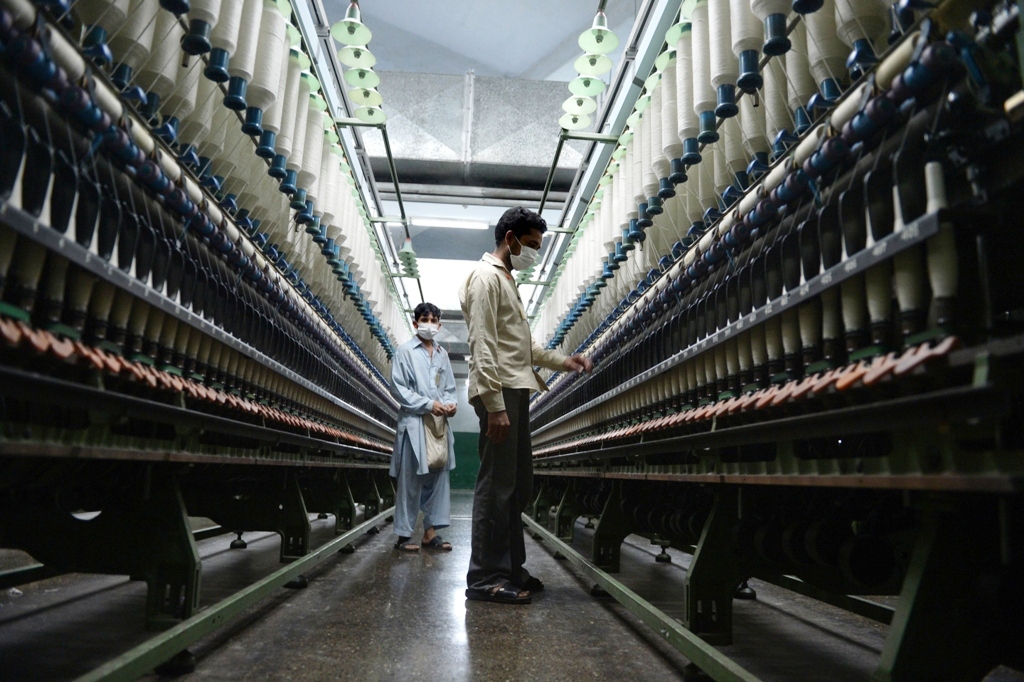
As the European Union Parliament moves closer to allowing duty free access for Pakistani products by early next month, industrialists in the country’s textile hub, Faisalabad, are surprisingly not as excited.
The approval and implementation of the Generalized System of Preferences plus (GSP plus) coincides with a temporary cut of gas supplies to the industries.
After the likely approval of the GSP plus scheme by the EU Parliament, the scheme will be implemented from January next year. The EU Parliament’s international trade committee has already cleared the scheme with a majority vote for ten countries including Pakistan.
The scheme will allow Pakistan to export duty free goods to EU. Currently, textile exporters pay an 11% tariff.
According to Faisalabad’s textile exporters, they will not be well positioned to take full advantage of the scheme because of the energy crisis. The winter season is the peak season for garment exports to international markets, as well the peak season of gas shortages in the country, said garments exporters while talking to The Express Tribune.

The manufacturing process will be paralyzed due to gas shortage in coming three months when the Sui Northern Gas Pipelines Limited will suspend supplies for three months.
Garment exporters have demanded the government to take the right decision to resolve the gas crises on priority basis. These concerns are also privately shared by the European diplomats. They believe that when the industries running at 50-60% of their capacity due to the energy crisis will not be in a position to take full advantage of the situation.
“If the government wants the local industry to take maximum advantage of the GSP plus scheme, it must ensure uninterrupted gas supply,” said Qamar Aftab, Chief Executive Officer of Image Garments while talking to The Express Tribune. The acute shortages of gas in coming months will definitely disturb the Christmas and New Year orders, he added.
Sheikh Ashfaq Ahmad, Chief Executive Officer of Ashfaq Textile Mills Limited, told The Express Tribune that running factories on alternate expensive fuels will increase cost of production by 10-15%, which will erode the benefits of duty free access.
Some of the manufacturers have invested in value added textiles to take full advantage of the GSP Plus scheme. They have invested millions of rupees by setting up alternative energy plants which run on coal to fulfill the international consignment obligations.
Exporters will miss at least some of the orders ahead of Christmas and New Year as textile exporters have stopped finalising fresh orders due to gas shortages in the coming months, said Rana Irtaza, General Manager of Tauseef Enterprises.
Manufacturers and exporters cannot afford to lose this opportunity, which comes once in a year. Industrialists are trying to convince the government to withdraw this decision but in vain, he added.
EU trade concessions may benefit larger manufacturers more than the small and medium exporters, Irtiza adds. If the energy crises is resolved, the exports could be doubled in a few years, he said.
Published in The Express Tribune, November 15th, 2013.
Like Business on Facebook, follow @TribuneBiz on Twitter to stay informed and join in the conversation.
1725030039-0/Untitled-design-(2)1725030039-0-405x300.webp)
















COMMENTS
Comments are moderated and generally will be posted if they are on-topic and not abusive.
For more information, please see our Comments FAQ